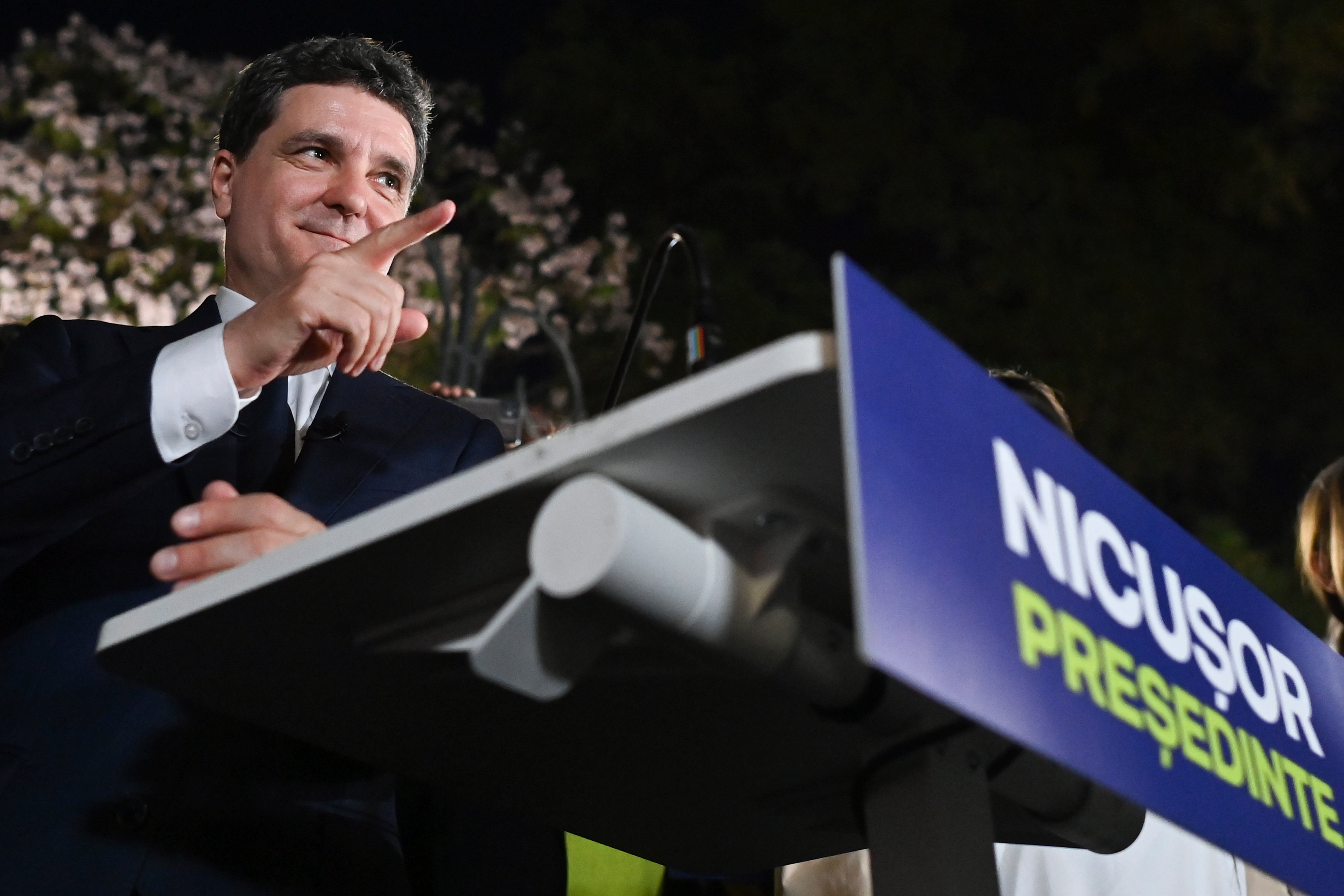George Simion, leader of the hard-right Alliance for the Unity of Romanians, has emerged as the clear frontrunner in Romania’s presidential election redo, securing 40.5 per cent of the vote with nearly all ballots counted.
The vote followed last year’s annulled election marred by allegations of fraud.
Mr Simion, 38, now faces Bucharest mayor Nicusor Dan in the May 18 runoff.
Mr Dan trailed with 20.89 per cent of the vote while centrist Crin Antonescu, the ruling coalition’s candidate, stood third with 20.34 per cent and conceded defeat, saying it was an “irreversible result”.
“This is not just an electoral victory, it is a victory of Romanian dignity. It’s the victory of those who have not lost hope, of those who still believe in Romania, a free, respected, sovereign country,” Mr Simion said in a recorded speech aired after polls closed.
“I am here to restore constitutional order. I want democracy, I want normalcy, and I have a single objective: to give back to Romanian people what was taken from them and to place at the centre of decision-making the ordinary, honest, dignified people.”

The rerun followed the disqualification of Calin Georgescu, who unexpectedly topped the first round of the 2024 election but was controversially barred from running this time around.
The 2024 result was annulled after the top court ruled that declassified documents had revealed alleged Russian influence in the election.
Mr Georgescu denied any wrongdoing.
Mr Simion, who backed Mr Georgescu, 63, vowed to restore “constitutional order” and appeal to Romanians disillusioned with the political elite.
On Sunday, he said he had no other goal than “first place for the Romanian people”.
Mr Georgescu called the vote rerun “a fraud orchestrated by those who have made deceit the only state policy”. However, he added that he voted to “acknowledge the power of democracy, the power of the vote that frightens the system, that terrifies the system”.

According to the Central Election Bureau, nearly 9.57 million people, 53.2 per cent of those eligible, voted in the election, including 973,000 at overseas polling stations.
Analysts said that Mr Simion’s success signalled a political upheaval and rising populism amid economic malaise and deep mistrust in traditional institutions in Romania.
Mr Simion said earlier that if elected, he would reveal “how much we have contributed to the war effort in Ukraine, to the detriment of Romanian children and our elderly”.
“The anti-establishment sentiment is not like an anarchic movement but is against the people who destroyed this country,” he told Associated Press days before the rerun. “We are not a democratic state anymore.”
Cristian Andrei, a political consultant in Bucharest, told the news agency Mr Simion’s decisive lead marked a fundamental shift in Romania’s political landscape. And if Mr Dan advanced to the runoff as well, he added, it would signal a resounding rejection of the traditional political class and establishment.
“You have a populist or pro-sovereign movement, and you also have this liberal, urban, pro-Western segment of Romania that wants change,” he said, explaining that it would be a “huge rejection of the classic political parties, and this will mean that the entire political spectrum will be reshaped.”
Mr Dan, a 55-year-old mathematician and former anti-corruption activist who founded the Save Romania Union in 2016, campaigned on a pro-EU “Honest Romania” platform.
“It is about the trust of Romanians and our partners in democracy,” he said after the polls closed, “and in my opinion, it is a new beginning that we all have a responsibility to do correctly.”


